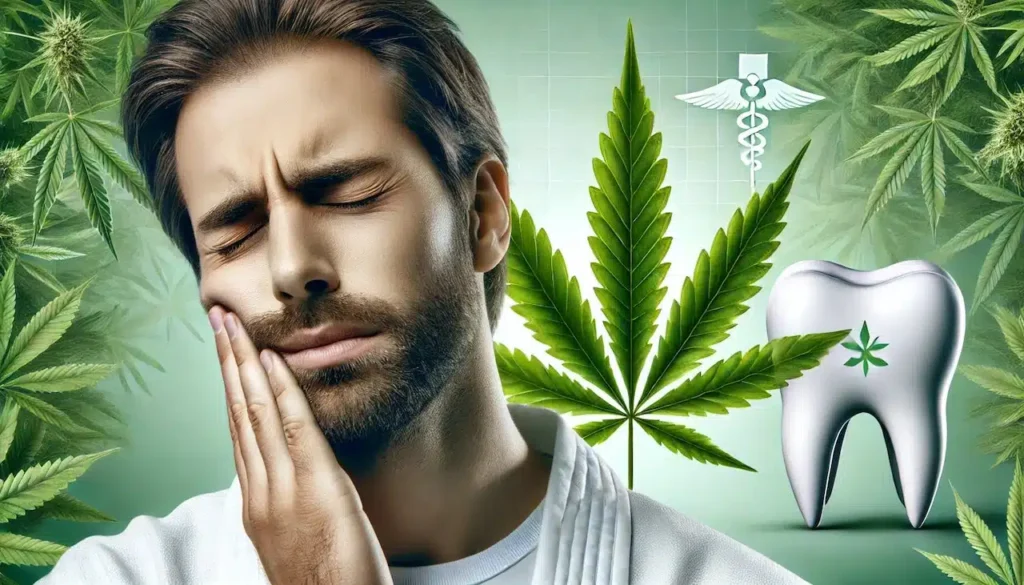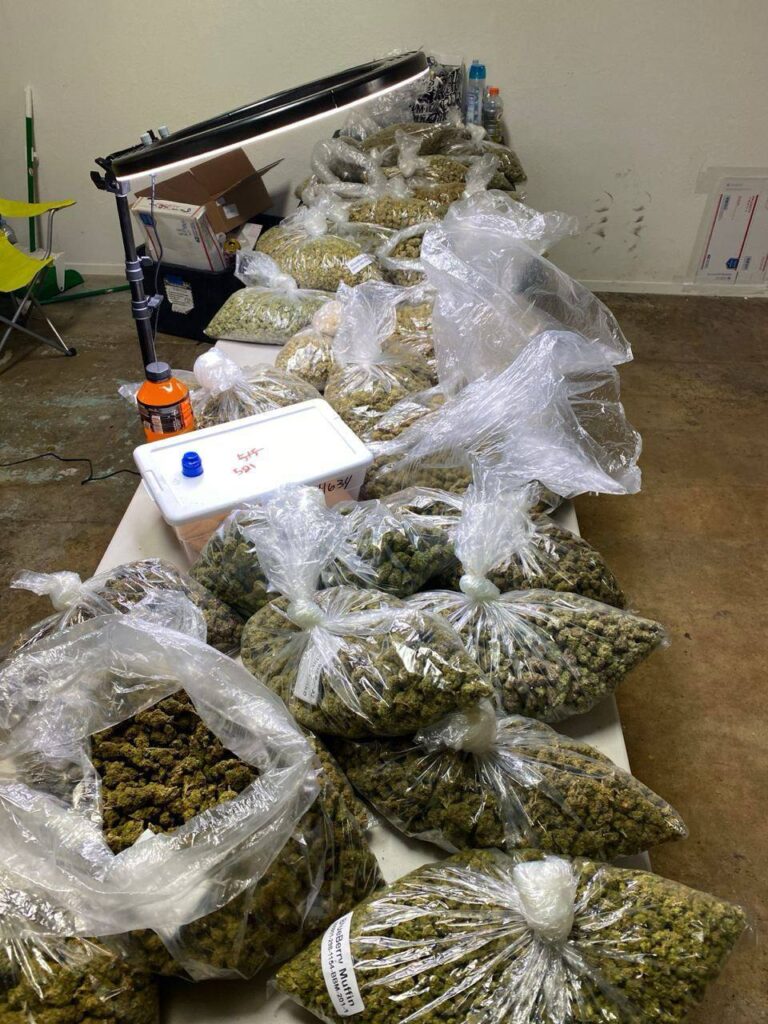Blog
Cannabis Norway. Does Cannabis Help Toothache?
Table of Contents
Cannabis Norway
Toothaches are no fun, right? We’ve all experienced that desperate clutch of our jaw, praying for the pain to subside, looking for anything to ease the discomfort. Typically, we might pop some painkillers or rush to the dentist, but there’s a new player in town catching eyes for pain management: cannabis. With its rising fame for alleviating pain, many wonder if it could be the answer to a nagging toothache. Dive into this article as we delve into whether cannabis can soothe your dental agony, how it might do so, various methods of use, and important considerations before you decide to give it a try for your tooth troubles.
How Does Cannabis Work to Relieve Toothache?
Toothaches are no fun, and cannabis might offer some temporary relief. But how exactly does it work? The answer lies in your body’s own endocannabinoid system (ECS).
The ECS is a complex network of receptors found throughout the body, including in the areas involved in pain perception and inflammation. It produces its own cannabinoids, similar to those found in cannabis plants, that bind to these receptors and regulate various functions like pain, mood, and inflammation.

Here’s how cannabis comes into play:
- Cannabinoids: Cannabis plants are rich in cannabinoids, most notably THC and CBD. These interact with the ECS receptors in similar ways to the body’s natural cannabinoids.
- THC (Tetrahydrocannabinol): This psychoactive compound is responsible for the “high” associated with cannabis. Studies suggest THC can also interact with ECS receptors to modulate pain perception, offering some pain relief.
- CBD (Cannabidiol): This non-psychoactive compound doesn’t directly target pain receptors. However, CBD’s anti-inflammatory properties may help reduce inflammation in the gums or around the tooth, which can be a contributing factor to toothaches.
- The Entourage Effect: This theory suggests that the various cannabinoids and other compounds found in cannabis work together synergistically. This means a combination of cannabinoids, like THC and CBD, might offer more potent pain relief than either one alone.
Toothaches often drive people to seek any form of relief from the intense pain. With cannabis increasingly recognized for its pain-relieving properties, many wonder if it could alleviate the agony of a toothache. Here’s a look at how cannabis might offer temporary relief from dental pain, though it’s important to note that it shouldn’t substitute for professional dental treatment.
MethodOnset TimeDurationProsConsSmoking/VapingImmediate1-3 hoursQuick relief, easy to control dosageLung irritation, short durationEdibles30-90 mins4-8 hoursLong-lasting effects, discreteDelayed onset, difficult to doseTinctures15-45 mins2-4 hoursQuick absorption, versatile useCan have strong tasteTopicalsImmediate2-4 hoursTargeted relief, non-psychoactiveLimited to local application
Cannabis Consumption Methods for Tooth Pain
| Method | Onset Time | Duration | Pros | Cons |
| Smoking/Vaping | Immediate | 1-3 hours | Quick relief, easy to control dosage | Lung irritation, short duration |
| Edibles | 30-90 mins | 4-8 hours | Long-lasting effects, discrete | Delayed onset, difficult to dose |
| Tinctures | 15-45 mins | 2-4 hours | Quick absorption, versatile use | Can have strong taste |
| Topicals | Immediate | 2-4 hours | Targeted relief, non-psychoactive | Limited to local application |
Cannabis Consumption Methods for Tooth Pain.
Kjøp cannabis norge
Methods of Consumption:
Quick Pain Alleviation: For immediate relief from pain, you might want to try smoking or vaping cannabis. Keep in mind, though, that smoke could potentially bother sensitive gum tissue.
Prolonged Relief: If you’re looking for pain relief that lasts, edibles or tinctures could serve you better. They do require some patience to start working, typically from 30 minutes to an hour, but once they do, their effects can persist for several hours.
Localized Pain Treatment: If your pain is concentrated in one spot, such as around a painful tooth, applying a CBD cream or salve directly to the area might offer some relief.
Finding the Right Dose:
Start Small, Increase Gradually: If you’re new to cannabis, begin with microdosing. This involves taking just a tiny amount at first and slowly increasing it until you achieve the desired relief. This approach minimizes the risk of experiencing overwhelming psychoactive effects, allowing you to manage pain without getting too high.
Balancing THC and CBD: Opting for a mix of THC and CBD might be beneficial. THC can help with pain relief, whereas CBD can tackle inflammation and might mitigate the psychoactive properties of THC. Seek out products that offer a balanced THC-to-CBD ratio to maximize pain relief while keeping psychoactive effects in check.

Getting Professional Advice:
Personalized Cannabis Use: Everyone’s experience with cannabis can differ based on individual factors and circumstances. It’s wise to seek advice from a healthcare provider, such as a doctor or a dentist knowledgeable in medical cannabis. They can guide you on the most suitable form, dosage, and type of cannabis product tailored to your unique needs, while also making sure it won’t conflict with other medications you might be on.
Potential Benefits of Cannabis for Dental Issues
- Reducing Inflammation: Cannabis possesses anti-inflammatory qualities that can help decrease swelling and pain in the gums.
- Pain Relief: The analgesic effects of cannabinoids can effectively manage pain, including that from toothaches.
- Easing Anxiety: Cannabis may also help reduce anxiety, which could make trips to the dentist more tolerable.
Strains and Products for Dental Pain Relief
Popular Strains:
- **Indica:** Generally known for their relaxing, sedative effects, which might be beneficial for nighttime use or when you want to calm down. – **Sativa:** Often energizing and uplifting, potentially useful during the day or when you need a boost. – **Hybrids:** Combine traits of both Indica and Sativa, offering a middle ground that can cater to various needs. **High-CBD Strains:** These are excellent for targeting inflammation while minimizing the ‘high’ feeling associated with THC. **Balanced THC/CBD Strains:** These strains can deliver pain relief while also moderating the psychoactive impact of THC, providing a more controlled experience.
Product Types:
- Oils and Tinctures: For sublingual use, offering quick absorption and long-lasting effects.
- Edibles: Provide long-lasting relief but with delayed onset.
- Topicals: Direct application to the gums or affected area for localized pain relief.
Buy Premium Recreational and medical marijuana norway

Conclusion
Cannabis holds promise as a treatment for toothache due to its anti-inflammatory, analgesic, and anxiety-reducing properties. However, it should be used in conjunction with good dental hygiene practices and under the guidance of a healthcare professional. Cannabis could be a valuable addition to toothache management, but its use should be carefully considered and monitored to ensure safety and effectiveness.

Kjøp cannabis,cannabis til salgs,cannabis nyheter norge,cannabis news norway,thc vape norge,medical cannabis norway,medisinsk cannabis norge,medisinsk marihuana norge,marihuana norge,recreational marijuana,marijuana legalization,marijuana oil,marijuana legal in norway,norway marijuana,marijuana poland,marijuana leaf,marijuana in norway,is marijuana legal in norway
